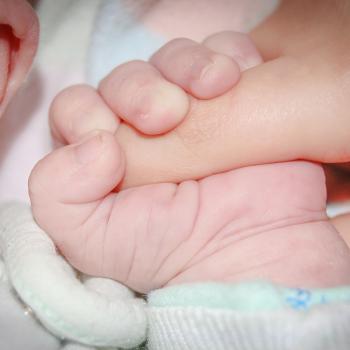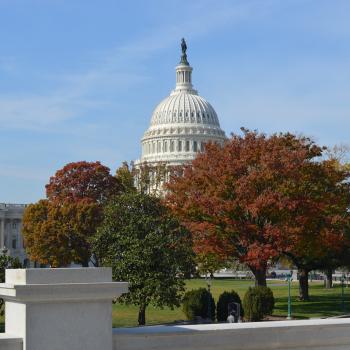I’ve long maintained the belief that the United Nations is nothing more than a den of vipers and thieves, and that there’s no good reason for keeping them in the United States – much less, for the United States footing the bulk of the upkeep.
I could go on and on about the Oil-for-Food scandal that reached to the very top of the United Nations. An independent investigation, headed up by former United States Federal Reserve Chairman Paul Volcker, found that the UN botched oversight of the program so horribly, changes needed to be made from the top, down.
According to the Council on Foreign Relations:
It found the program achieved its central goal of feeding Iraqis and preventing Saddam Hussein from reassembling weapons of mass destruction. But the inquiry cited a range of lapses, negligence and corrupt practices that allowed Saddam’s regime to earn as much as $11 billion while under sanctions. It cited poor judgment by UN Secretary-General Kofi Annan in failing to pursue inquiries involving his son, Kojo, and companies involved in the oil-for-food program, lax oversight by the UN Security Council, and shoddy UN procurement practices. It also accused the former head of the program, Benon Sevan, of a conflict of interest for helping a friend obtain contracts to sell Iraqi oil—a charge which Sevan has denied. The Volcker commission’s final report accused more than 2,000 companies of paying bribes and receiving kickbacks to participate in the program.
Somebody was getting rich off of the backs of the Iraqi people, after the war.
You’d think this would make the UN really reassess the way they operate, but, no.
Pete Gallo, a former UN corruption investigator, spoke to a group in Washington D.C. on Wednesday, saying there have been an estimated 60,000 women and children raped or otherwise abused by UN personnel over the last ten years.
With such a record, the powers-that-be should want there to be swift retribution. In February, UN Secretary General Antonio Guterres tweeted out that there would be no immunity for UN workers who abuse their position in such a way.
Gallo isn’t taking him seriously.
The cases Gallow mentions are disturbing.
In one case a whistleblower had lodged a complaint when a Chinese human rights defender was detained in China and died from injuries. Her government jailed her after UN staff gave them her name and the names of other Chinese human rights protesters who were seeking visas for a UN conference. The whistleblower said UN staff retaliated, resulting in the loss of employment. The threat of losing a UN job is a major barrier to reporting abuse since the salaries can be eight times more than a local salary. Gallo says that the UN should offer employees permanent contracts to limit such a threat.
Well, that’s dirty.
One particularly disturbing detail is how the UN have granted themselves certain immunities from prosecution (in spite of what Guterrez said).
Along with retaliation, the UN bureaucracy falls back on a 1946 agreement giving them immunity for violations of the law during official duties. But Gallo says rape of a 12-year-old girl, one of his clients, is never in the line of duty. He says the immunity clause must be reexamined, and that cases should be referred to local authorities not UN bureaucrats. As it stands a UN office, the Conduct and Discipline Unit, filters which complaints, including rape and other serious crimes, go forward to the Office of Internal Oversight Services.
No criminal proceedings can begin while the office investigates, which can be two or three years. By then a rape case becomes extremely difficult to prosecute. Even if a case is decided in favor of the whistleblower, seventy percent of them are overturned on appeal by the UN, while only seven percent of whistleblower appeals end in their favor.
Unbelievable.
Gallo goes on to point out that the UN keeps tight controls over what gets reported about the abuses. They limit them, to use their terms, to those who are “consistent with the principles of the [UN] Organization.”
So other anti-Semites, or…?
According to Gallo, a Liberian radio journalist served as a fine example of how they’ll use UN funds to shut down dissent.
In the case of this Liberian journalist, he at one time was a UN critic, reporting on a UN mission in Africa, when he suddenly found himself hired by a UN radio station for sixteen times the salary, then was plunked down in an administrative position, essentially silenced, in order to stop the reporting on what they were doing.
The U.S. contributes 22 percent to the upkeep of the UN. Is this why?
Gallo said there are national security considerations as well because the waste is likely going to fund terrorism. At just half a percent of what it spends on defense, U.S. spending on UN peacekeeping may seem like a good value, he said, but of the $3.4 billion the U.S. spends on the UN, a third goes to procurement of goods and services in places plagued by corruption. In three countries where the UN Office for the Coordination of Humanitarian Affairs (OCHA) funds NGOs, seventy to seventy-nine percent of UN aid went missing to fraud. Somalia ranks highest on Transparency.org’s corruption index with virtually no functioning government that is run by groups associated with international terrorism such as al-Shabaab.
It’s maddening to know that this organization continues to wield so much power over the world, and worse yet, they’re doing it while sitting on American soil, and badmouthing the U.S., as well as our allies.










